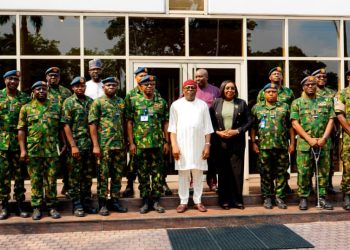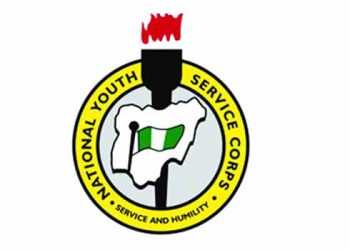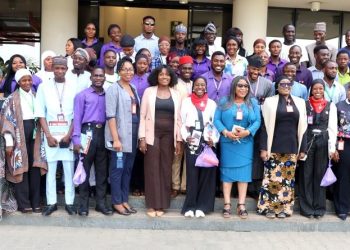By Nkechi Eze
In a renewed push to fortify Nigeria’s anti-money laundering regime and strengthen compliance with international financial regulations, the Nigeria Customs Service (NCS), in collaboration with key security, law enforcement, and regulatory agencies, conducted a sensitisation exercise targeting international airline operators at the Nnamdi Azikiwe International Airport (NAIA), Abuja, on Saturday, 5th July 2025.
The initiative, spearheaded by the NCS Anti-Money Laundering and Countering the Financing of Terrorism (AML/CFT) Unit, focused on enhancing awareness and operational compliance among airline operators regarding the country’s currency declaration laws. It was part of a broader strategic effort by the Service to curb the smuggling of undeclared funds, disrupt illicit financial flows, and align Nigeria’s border management systems with global standards.
Speaking during the event, Assistant Comptroller of Customs and Head of the AML/CFT Unit, Salihu Mas’ud, underscored the critical role airline operators play as frontline stakeholders in enforcing Nigeria’s currency reporting requirements for travellers. He emphasised the necessity of proactive communication and collaboration between airlines and border enforcement personnel, particularly in educating passengers about their obligation to declare monetary instruments in excess of the stipulated threshold.
According to Nigeria’s Financial Intelligence Regulations, any traveller entering or exiting the country with an amount exceeding $10,000 USD or its equivalent in any foreign currency must make a formal declaration to Customs. Failure to declare such currency amounts constitutes a violation of Nigerian law and attracts penalties, including forfeiture of funds, investigation, and potential prosecution under anti-money laundering statutes.
Mas’ud explained that the sensitisation was designed to address gaps in awareness, especially among airline staff who have a responsibility to ensure passengers are informed before disembarkation or boarding. “What we have achieved so far is to be able to sensitise them. We’ve gone round to check all the points. We have dedicated search rooms for secondary searches. There are dedicated posts for currency declarations, and they are in place,” he stated.
He added that airport public address systems are now being used to issue regular reminders, and airline operators have committed to including similar announcements during their in-flight briefings. “Announcements are also being made on the Public Address System. We have also gotten the commitment of the airline operators to ensure that these announcements are also being made on board their flights,” he affirmed.
The Customs Service, in partnership with other stakeholders such as the Nigerian Financial Intelligence Unit (NFIU), the Economic and Financial Crimes Commission (EFCC), the Department of State Services (DSS), the Nigerian Civil Aviation Authority (NCAA), and the Federal Airports Authority of Nigeria (FAAN), is rolling out a multi-layered surveillance framework to detect and deter cross-border currency smuggling and terrorist financing.
Key issues discussed at the engagement included the importance of submitting accurate electronic manifests (e-Manifests) ahead of aircraft arrival. Customs officials reiterated that these digital submissions must include full passenger details, such as names, nationalities, destinations, and flight numbers. The data, they explained, enables Customs and intelligence units to conduct thorough risk assessments, flag high-risk individuals, and allocate resources for targeted secondary inspections.
“We expect higher compliance, and it will strengthen our enforcement mechanism,” Mas’ud said. “It also ensures that defaulters and violators of currency declarations are detected promptly and forwarded for necessary investigation and prosecution.”
The event also provided an opportunity for Customs officials to demonstrate operational improvements at NAIA, including the recent upgrade of search facilities, establishment of specialised interrogation rooms, and deployment of dedicated declaration posts within international arrival halls.
Participants at the sensitisation included representatives of leading international carriers, airport security coordinators, and members of the Customs Area Command at the airport. They commended the initiative and pledged to support government efforts to ensure Nigeria’s entry and exit points remain secure and compliant with international aviation and financial standards.
With terrorism financing and money laundering increasingly linked to international travel networks, the Nigeria Customs Service has stepped up its collaborative efforts to close systemic loopholes. Authorities say the sensitisation of airlines is part of a series of engagements that will be extended to other international airports in Lagos, Kano, and Port Harcourt.
The NCS further called on travellers, airline staff, and the general public to be vigilant and comply with all legal requirements relating to currency declaration. Passengers are advised to seek clarification from Customs personnel at airports and visit official platforms of the Service to avoid falling foul of the law.
The sensitisation marks another significant step by the Nigeria Customs Service under the leadership of the Comptroller-General, in reaffirming its commitment to national security, economic integrity, and adherence to global financial compliance protocols.

















